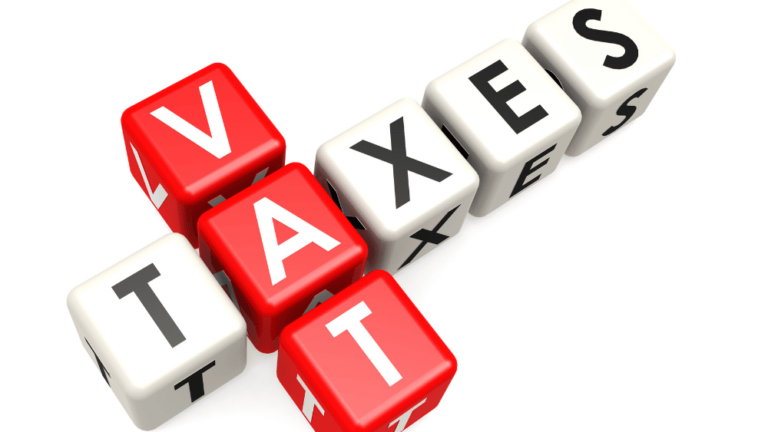
VAT: The option to tax
In this article we outline the key features of the option to tax and provide an update on recent changes – which could have a significant impact on your business if not fully understood and acted on.
What is an option to tax?
The option to tax is an area of VAT where there is often misunderstanding. Ensuring that the option to tax is considered and made and notified to HMRC correctly when relevant is very important, particularly since the changes that HMRC introduced in relation to this in February 2023.
Many transactions involving land and property are VAT exempt. This impacts the seller, landlord or developer, when they incur VAT in relation to the purchase of land or property subject to a VAT charge; or VAT on costs for supplies of construction; demolition; refurbishment or extension, on land promoter’s fees or other professional fees.
To recover the VAT on such expenditure, in most circumstances the business must first make and notify HMRC in writing of their decision to make an option to tax. The option to tax can only be applied to supplies involving commercial and other non-residential property, or to land.
Changes to the option to tax process
The main change is that taxpayers will no longer receive a letter from HMRC confirming that they have received the notification. Historically this is what taxpayers would have relied on as evidence that they had notified HMRC of an option to tax. Without this letter from HMRC, other forms of evidence are now required.
From 1 February 2023 HMRC has advised taxpayers to submit an option to tax using the option to tax national unit email address [email protected]. If you submit your notification using this method, you will receive an automated email response from HMRC which can be used as evidence that your option to tax has been received.
In addition, HMRC is no longer providing confirmation to a taxpayer who doesn’t hold a record of an option to tax made in the most recent six years and requests confirmation from HMRC as to whether a prior notification had been made.
These changes could cause difficulties in providing evidence that an option to tax is in place, for example if an automated receipt does not get produced when an option to tax is emailed to HMRC’s Option to Tax unit. We have also seen that contracts need to be updated to reflect these changes. The wording in sales contracts, in particular in relation to a transfer of a business as a going concern (TOGC contracts) often refer to an acknowledgment of an option to tax to be provided, and require updating to refer to the provision of evidence that the option has been submitted instead.
Other areas where this could cause issues are due diligence reviews where evidence of an option to tax may be required or a taxpayer needing to confirm to HMRC during a VAT inspection that certain properties have been opted to tax.
When is an option to tax required
There are many situations where the option to tax requirements can cause confusion, for example, a business acquires a property that has been opted to tax and believes that the option to tax carries over to their ownership. An option to tax is generally specific to a particular person, entity or VAT registration, and therefore the business would be required to notify HMRC of its own option to tax decision when it acquires the property, if it wants to be eligible to recover the VAT charged on the purchase, in many cases.
Businesses also need to consider when there is a change in use of a property, and this should be considered to ensure the correct VAT treatment is applied to each use of the property. An example of this could be a business occupying a building initially for its own fully taxable business activity, e.g. to manufacture goods for sale. If it decides to sub-let part of the building and has previously recovered VAT on the property, it needs to determine whether it needs to opt to tax. Otherwise, the rental income from the sub-let would be VAT exempt and could create a requirement for the owner/landlord to repay HMRC part of the VAT previously recovered.
There are some supplies of land that can be subject to VAT without an option to tax, therefore it is not always necessary to notify HMRC of an option to tax. For example, certain supplies of storage would be taxable, as well as the right to park vehicles. It is important that the business understands exactly what supply is being made so that the decision can be made if required to notify an option to tax.
Another area that can create issues is the lack of understanding around when an option to tax for example, a business has been charging VAT on rental income received and so believes that as it has opted to tax the property, but has not notified HMRC in writing of this. Unfortunately, this is not the case and, in this instance, it’s likely a belated notification would be required to be submitted to HMRC for their approval. This could add unreasonable delays when a business is looking to sell or rent a property, for example.
A review of each planned property transaction should be undertaken in advance to consider whether it is appropriate to opt to tax a property.
A recently reported VAT case has shown just how important it is to follow the correct procedures when notifying HMRC of an option to tax.
In the case of Rolldeen Estates Limited, the taxpayer sought to argue that a notification it had made to HMRC in 2008 should not have been accepted by HMRC because HMRC’s prior permission was required due to it having made VAT exempt supplies with the property prior to this. Rolldeen made an exempt sale of a property after having been charging and accounting for VAT on the rent.
When Rolldeen was assessed by HMRC for the VAT due on the sale of the property, Rolldeen argued that, the option to tax notification made was invalid as the rules required HMRC’s permission to be granted in that situation. As permission had not been requested nor granted, it believed the option to tax notification it had made was invalid.
HMRC, however, exercised its discretion under VATA 1994 Schedule 10 para 30 to treat the property as opted with effect from the date of the notification despite the absence of permission. The option to tax was treated as being effective from the date it was notified, and the assessment was held by the Tribunal judge to be valid.
VATA 1994 Schedule 10 para 30 gives HMRC a power which is rarely used but can be applied where HMRC can remove the requirement for permission to be granted at its discretion. This reinforces how important it is that the option to tax position is considered carefully and that the notification process is followed correctly.
Disapplication of an option to tax
An option to tax can be disapplied in certain situations and this is something that also needs to be considered. Anti avoidance rules can mean that an option to tax is disapplied for example where landlord and tenant are connected parties and either or both are partly exempt or exempt and cannot recover VAT. An option to tax on bare land can also be disapplied by purchasers in certain cases where the intention is to use the land for the construction of dwellings.
Revocation of an option to tax
Once you have notified HMRC of an option to tax it will remain in place for 20 years. This is unless ownership changes but it is still applicable up to six years after the person who had opted to tax no longer owns or has any other interest in the property or land. After 20 years you can apply to revoke an option to tax if certain conditions are met. There are also circumstances where the option to tax can be revoked after 6 months, again when certain conditions are met. This requires careful consideration in each case.
Option to tax: Key points
If an error is made in not opting to tax at the correct time, or indeed if an option to tax is made when none is required, this will significantly impact your VAT position and create VAT costs as well as mean there may be related VAT financial penalties or interest charges applicable.
The coverage of an option to tax can also create issues, e.g. not recognising that opting to tax one floor of a commercial building has effect over the entire building; or failing to provide sufficient detail when making and notifying an option to tax to HMRC, such that the full extent of the option to tax may be too wide or indeed insufficient. It could simply be erroneous, such as by providing an incorrect address or description of the land or property to be covered; or failing to recognise that HMRC’s prior permission to opt to tax is sometimes required.
The key message from us is to seek specialist VAT advice at the earliest possible time, to ensure all VAT implications are fully identified, considered and planned for in advance of entering into any contract or agreement, whether selling, leasing, buying or developing/improving a property.
Written by











